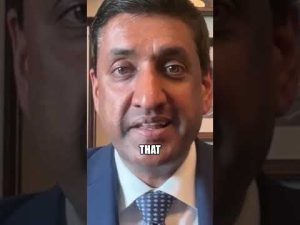In the heart of Washington, D.C., where the corridors of power echo with the debate over law enforcement integrity, a fiery exchange unfolded that had politicians and onlookers alike buzzing with anticipation. This gathering was not just any Senate hearing; it centered around crucial conversations about the oversight of federal law enforcement agencies and their alleged overreach against conservatives. Kash Patel, a prominent figure who has endured the full weight of the government’s scrutiny himself, emerged as a leading voice demanding accountability and transparency. As he strode into the hearing, one could almost sense the anticipation in the air, as if a heavyweight match were about to begin.
From the outset, Patel laid bare the troubling allegations surrounding the FBI and the Department of Justice. He pointed out politically motivated misconduct that seemed to set the stage for significant consequences. With fiery rhetoric, he highlighted the misuse of the Steele dossier, revealing it to be an explosive piece of misinformation that, rather than serving justice, turned into a tool for political sabotage. The implications of this narrative left many in the room wearing expressions of incredulity, wondering just how far the tentacles of such misconduct had stretched into American politics.
In an eyebrow-raising moment, the attention of the committee shifted unexpectedly to discussions around high-profile cases, notably that of Jeffrey Epstein. Senator Marsha Blackburn and Senator Dick Durbin found themselves in a verbal tug-of-war, each defending their position while the audience watched with rapt attention. Blackburn’s pointed remarks about the block on releasing the Epstein client list revealed a simmering tension, with implications suggesting that some were keen to keep certain details buried. This clash highlighted just how complex the web of political alliances and enmities can be, especially when accountability is on the line.
On the other side of the microphone, Tulsi Gabbard, former presidential candidate, spoke up against the bureaucratic machinations that have admitted to suffering from “faulty” intelligence operations. Her criticisms carried the weight of her own experiences, revealing how the system betrayed not just political figures but ordinary citizens as well. In a surreal twist of fate, Gabbard, once a standard bearer for a different message, now found herself on the other side of the aisle, confronting her former party on a multitude of issues. The reactions from her peers spoke volumes, as it appeared some members would rather avoid confronting the uncomfortable truths she was eager to unleash.
Amidst all the political drama was a recurring theme—corruption within the government was no longer a mere whisper circulating among conspiracy theorists but rather front and center in serious congressional discussions. As RFK Jr. entered the dialogue, he struck hard at the financial entanglements binding Congress to pharmaceutical interests, a point that hit fearsome chords among the status quo. The palpable discomfort amongst those whose fortunes rested on pharmaceutical funding was evident, leading to a lively back-and-forth that many in the audience wouldn’t soon forget.
The day’s events were a stark reminder that the battles over accountability, transparency, and integrity within law enforcement and government continue to rage. Patel’s presence, along with the heated exchanges between senators, indicated a growing disillusionment with the status quo. As the echoes of these debates fade into the backdrop of Washington, one thing remains certain: the push for reform is only just beginning. With each revelation, the eagerly watched spectacle of law and order in America seems to grow more precarious, drawing everyone into a climatic drama whose final act remains unwritten.







